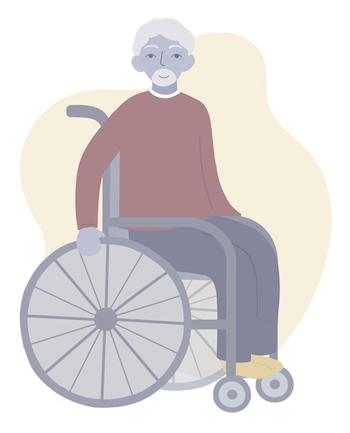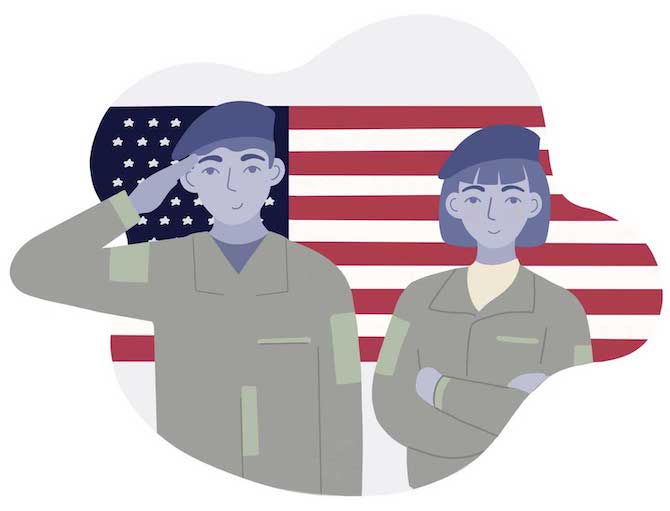
Veterans may face unique sleep challenges sometimes due to the nature of their training and their time in the service, whether or not they saw combat. Transitioning from military life to civilian life can comes with a host of challenges, and sleep problems are quite common in veterans of all ages.
It’s recommended that a person get seven to nine hours of sleep per night, but some studies suggest that veterans experience insomnia or have poor sleep leading to daytime functioning difficulties. If you’re a veteran who’s struggling to get high-quality sleep on a regular basis, you are not alone.
This article will cover what we know about veterans and sleep issues, including common sleep problems veterans may have and why. It will also explain the potential connections between post-traumatic stress disorder (PTSD) and sleep problems, explain the potential consequences of sleep deprivation in veterans, and offer tips for veterans to get better sleep along with further resources.
What The Stats Say About Veterans And Sleep
According to the American Academy of Sleep Medicine, an increasing number of veterans are being diagnosed with sleep issues.
A 2020 study published in the journal Sleep found that one of the most common sleep issues among veterans was insomnia. Insomnia and sleep apnea are linked to your heart health. They could cause high blood pressure and other health conditions.
Sleep issues might be frustrating and difficult to live with, and it’s worth getting treatment for ongoing, chronic sleep problems. If you’re concerned about your sleep, connect with a doctor to talk through the next steps together. You can also seek out a specialist sleep doctor, research sleep coaches in your area, or bring up sleep problems in any support groups you may be attending.
Why Veterans Might Struggle To Sleep Well
There are a number of reasons why veterans might struggle to get enough high-quality sleep, ranging from adjusting to a civilian schedule to injuries sustained while in service. Veterans may be at a greater risk of certain injuries and PTSD than the civilian population, and they may also have sleep issues at a higher rate. Here are some of the most common causes of sleep issues among veterans.
Traumatic Brain Injury (TBI)
A traumatic brain injury (TBI) is defined by the Centers for Disease Control and Prevention as “a disruption in the normal function of the brain that can be caused by a bump, blow, or jolt to the head, or penetrating head injury.”
The U.S. Department of Veterans Affairs says that active service members and veterans may experience TBIs when in combat or during training, estimating that 22% of all combat wounds from Iraq and Afghanistan are brain injuries.
It’s estimated that 46% of people with a TBI experience sleep disturbances.
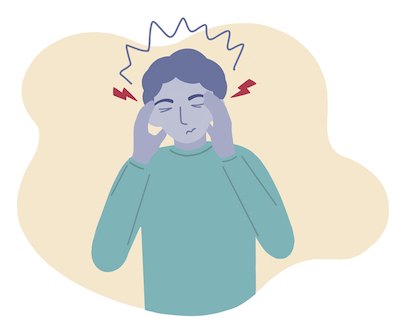
Symptoms of a TBI can be physical, sensory, and cognitive. Some of these symptoms include:
- Losing consciousness for anywhere from seconds to minutes
- Headache
- Nausea and/or vomiting
- Fatigue
- Dizziness and/or blurred vision
- Ringing in the ears
- Light sensitivity and sensitivity to sound
- Trouble concentrating
- Memory issues
- Coordination problems
- Feeling anxious or depressed
A TBI can be diagnosed via a physical exam by a healthcare provider and using a brain scan, like a computerized tomography (CT) or magnetic resonance imaging (MRI) scan. The scan can look for bleeding, swelling, bruised brain tissue, increased pressure on the brain, and blood clots.
Treatment for TBIs depends on how serious the injury is — some mild cases will resolve on their own, while others may require surgery, medication, and rehabilitation services.
Sleep Schedules
The American Sleep Apnea Association explains that some veterans will have followed very specific sleep-wake schedules during their time in the service and that these schedules do not necessarily line up with civilian life.
For instance, veterans may be used to working swing shifts, double shifts, night shifts, or working in different time zones. Depending on how long they spent in the military, veterans may need several months or even years to adjust to a civilian sleep schedule.
Physical Injuries
According to the U.S. Census Bureau, around 19.5% of veterans receive disability benefits. Many veterans may be living with physical and emotional conditions that don’t meet disability criteria but can still interfere with veterans’ sleep and overall quality of life.
Physical injuries can cause chronic pain, which can contribute to sleep debt and worse-quality sleep.
Common injuries from training and combat include burns, broken bones, back, and spinal cord injuries, nerve damage, and hearing damage. Treatment for these injuries can take time, and many veterans may have chronic pain both during and after treatment.
RELATED: Best Pillows For Neck Pain
Substance Use
According to a 2017 study published in the journal Substance Abuse and Rehabilitation, roughly 11% of veterans seeking healthcare services from the U.S. Department of Veterans Affairs (VA) meet the criteria for drug or alcohol abuse disorders.
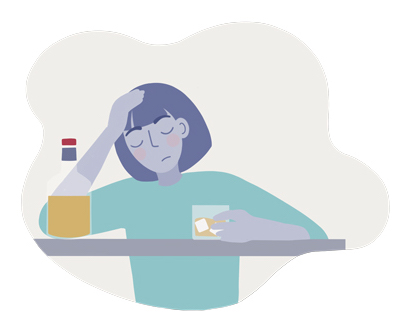
Given that not all veterans use the VA, the number of veterans struggling with substance use and abuse may be significantly higher. “When looking at the pattern for male veterans aged 18–25 years only, the rates of substance abuse were higher in veterans compared with civilians,” the study stated.
Substance use can affect sleep in multiple ways. Alcohol use can cause or worsen sleep apnea, and binge drinking is linked to insomnia. Cannabis, cocaine, and opioids may also be connected to a variety of sleep problems.
Tinnitus
Tinnitus is the perception of a ringing or buzzing noise in the ears — hearing it when there is no external sound causing it. According to the American Tinnitus Association, tinnitus is the number one disability facing U.S. veterans, and “9.7% of all vets received service-related disability compensation for the condition in 2012.”
Veterans are uniquely vulnerable to tinnitus due to the loud noises made by military machinery and engagement. Hearing a ringing or buzzing sound can make it extremely difficult to relax, get to sleep, and sleep through the night.
Anxiety And Depression

The National Veterans Foundation says many veterans struggle with anxiety, depression, or other mental health issues.
Research suggests that stress and anxiety can cause or worsen sleep problems like insomnia, restless leg syndrome, narcolepsy, sleepwalking, and grinding teeth during sleep (bruxism).
While therapy may provide relief from anxiety and depression, some veterans are not seeking or receiving therapeutic treatment.
What Is PTSD And How Can It Impact Veterans’ Sleep?
Post-traumatic stress disorder (PTSD) is a mental health condition that is brought on by experiencing or witnessing a traumatic event. It can be normal to feel some anxiety after an event like a car crash, violent crime, assault, or military combat. But for people with PTSD, that anxiety is more intense and does not subside over time.
People with PTSD may experience flashbacks of the event, nightmares related to the event, and vivid, intrusive memories of the event. Other symptoms of PTSD include feeling isolated, feeling tense or on edge, experiencing bursts of anger, struggling to concentrate, and having trouble falling asleep or staying asleep. PTSD may also been linked to an increased likelihood of fibromyalgia, especially among female veterans.
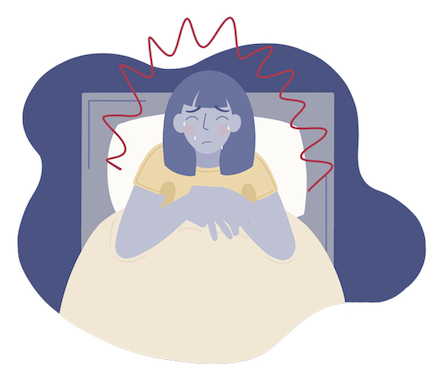
The U.S. Department of Veterans Affairs says rates of PTSD vary depending on service era, but estimated that 15-29% of veterans who served in Operation Iraqi Freedom and Operation Enduring Freedom have PTSD, compared to 14-21% of Gulf War veterans. They also estimate that 10% of Vietnam War veterans have experienced PTSD in their lifetime.
The 2016 issue of PTSD Research Quarterly explains how PTSD affects veterans’ sleep in a number of ways and offers multiple options for treatment, both psychological and pharmacological. The paper states:
- 52% of combat veterans diagnosed with PTSD report having “a significant nightmare problem”
- Nightmares and insomnia in veterans with PTSD “tend to become independent problems over time,” meaning the issues require specific sleep treatment and will not necessarily respond to PTSD treatment
- PTSD nightmares may also be linked to daytime distress and impaired functioning
- Veterans with PTSD may also have obstructive sleep apnea (OSA), a condition where breathing repeatedly stops and starts during sleep
- Trials show that a number of medications, including prazosin, hydroxyzine, trazodone, and risperidone, may be effective in treating insomnia in some veterans with PTSD
- Other studies suggest that Cognitive Behavioral Therapy (CBT) helps some veterans with PTSD improve their sleep quality
RELATED: Best Mattresses 2019
Common Sleep Disorders Among Veterans
Veterans may have a number of sleep disorders related to injuries or conditions that develop as a result of their time in service. Common disorders include nightmares, insomnia, parasomnias, circadian rhythm disorders, and narcolepsy.
Nightmares
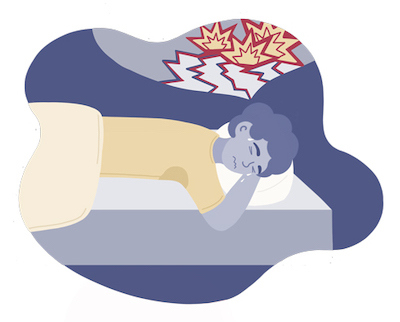
Nightmares are dreams that cause distressing emotions such as fear, anxiety, and even terror. They can cause sleep disturbances or make someone worried about going to sleep at night.
According to a 2018 study, a high percentage of U.S. military personnel are having regular nightmares, but aren’t reporting them as a sleep-related concern.
Researchers surveyed 493 active-duty U.S. military personnel who had undergone sleep evaluations at the Sleep Medicine Center at Martin Army Medical Center in Fort Benning, Georgia. They found that 31.2% had nightmares at least once a week, meaning they had a nightmare disorder, but only 3.9% said those nightmares were one of the reasons they wanted a sleep evaluation. Plus, 60% of the people who had nightmares said they had nightmares about trauma.
Insomnia
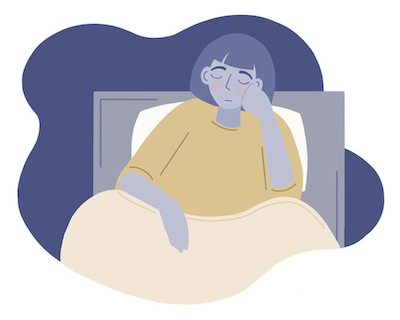
Insomnia occurs when someone has trouble falling asleep or trouble staying asleep throughout the night. Insomnia becomes chronic when it occurs almost every night for a month or more.
The right treatment for insomnia depends on how long it has lasted and any underlying causes. If treating an underlying cause doesn’t make insomnia any better, treatment options include changing one’s sleep habits and trying meditation or relaxation therapy.
Parasomnias
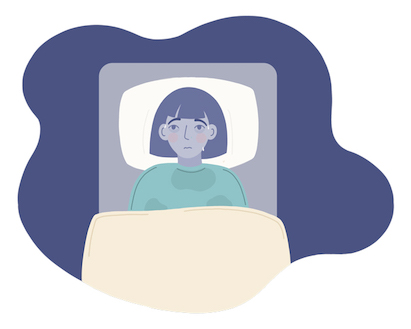
Parasomnias are sleep disorders that involve abnormal motor or verbal actions during sleep or sleep-wake transitions.
Examples of parasomnias include walking or talking during sleep. Nightmares are a type of parasomnia, as are sleep paralysis and REM sleep behavior disorder (when people act out their dreams).
It’s a good idea to speak to a doctor if you or a family member experience parasomnias. Sleepwalking, in particular, can be dangerous, as sleepwalkers can trip or fall, leave the house, or even get into their car and drive while still asleep. Your doctor can discuss any underlying issues and come up with an appropriate treatment plan.
Circadian Rhythm Disorders
Circadian rhythm disorders are conditions where someone’s sleep-wake cycle is out of alignment, meaning they don’t go to sleep or wake up at a “typical” time. There are different types of circadian rhythm disorders, including:
- People with Delayed Sleep-Wake Phase are “delayed” by about two hours, preferring a late bedtime and a late wake-up time.
- Those with the opposite condition, Advanced Sleep-Wake Phase, fall asleep hours before a “normal” bedtime and wake up extremely early.
- Some people experience Irregular Sleep-Wake Rhythm, where they fall asleep and wake up at times “so disorganized that there is no clear sleep or wake pattern.” Sometimes, people with this condition take multiple naps over 24-hour periods rather than sleeping in one long block of time.
- Then there’s Non-24-Hour Sleep-Wake Rhythm, where people’s bedtime may get later and later each day, from evening to late night to early morning to the afternoon, repeating around the clock.
As one can imagine, any of these disorders can make it challenging to maintain a regular sleep-wake cycle.
Narcolepsy

Narcolepsy is a disorder that causes sudden onset deep sleep that occurs often at inappropriate times.
There is no known cure for the disease, but medications and lifestyle changes can help mitigate the symptoms.
What Are Some Of The Consequences Of Sleep Deprivation Among Veterans?
Chronic sleep deprivation can have physical and mental consequences. Signs of sleep deprivation include excessive sleepiness, daytime fatigue, and feeling irritable.
Additionally, sleep deprivation can:
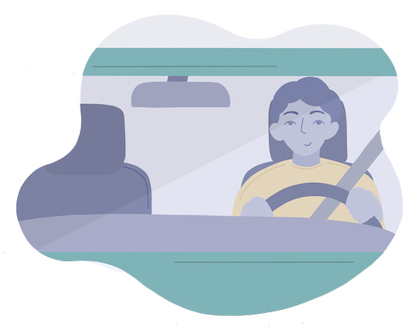
- Increase the risk of obesity
- Affect feelings of hunger and satiety
- Cause car crashes and work accidents
- Worsen one’s immune system
- Increase one’s risk of high blood pressure and heart disease
- Increase one’s risk for type 2 diabetes
- Increase one’s risk of developing dementia
Sleep deprivation can also put veterans at increased risk of suicidal thoughts. An estimated 20 veterans die by suicide every day, according to a 2017 article from VA news. Programs like Recovery Engagement and Coordination for Health – Veterans Enhanced Treatment (REACH VET) aim to connect with struggling veterans and refer them to necessary services.
How Veterans Can Get Better Sleep
Ways to improve sleep for veterans will vary depending on the sleep problems in question. People who have been diagnosed or think they may have a sleep disorder should seek treatment for that disorder — chat with a doctor about the best course. Potential treatments for sleep disorders include:
- Cognitive behavioral therapy
- Medications
- Psychotherapy
- Light therapy
Does Talk Therapy Work for Insomnia?
Cognitive Behavioral Therapy (CBT) is a form of talk therapy focused on combating insomnia without the use of sleeping pills. In addition to talking to a counselor about life issues, a participant may also undertake a few sleep tests and keep a sleep diary.
One study that included 151 active-duty military personnel found that the results were quite positive, where CBT was an effective treatment for insomnia. Many of those who participated in the talk therapy also scored better on mental health exams.
VAntage Point, the official blog of the U.S. Department of Veterans Affairs, offers a number of sleep tips aimed at veterans:
- Make sure one’s sleeping space feels comfortable and safe
- Ask friends or family to sleep in the room with you or in a room nearby
- Make time to relax and wind down in the evening before bed
- Practice good sleep hygiene. This includes keeping the bedroom cool, quiet, and dark; avoiding screens before bed; going to sleep at the same time each night and waking up at the same time each morning, and following a regular bedtime routine
- Avoid drinking alcohol or eating heavy food late at night
RELATED: Best Mattresses For Back Pain
Overcoming The Stigma Around Seeking Help
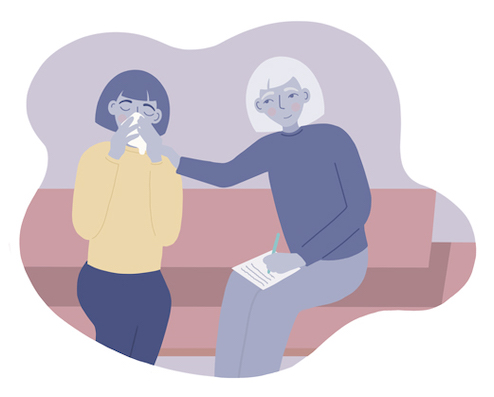
It can be difficult to ask for help when someone is struggling with something like sleep. Many people believe they can function fine on very little sleep, or they don’t think sleep problems are serious enough to warrant medical attention. In fact, sleep deprivation can be very serious, and it’s worth reaching out for support around sleep issues and their underlying causes.
Veterans whose sleep issues are linked to PTSD, anxiety, and depression may be particularly reluctant to seek help due to the stigma surrounding mental health conditions.
A 2018 study published in the journal BMC Health Services Research cited a number of reasons why veterans are reluctant to seek help from the VA for mental health issues. Researchers found that social stigma, financial obstacles, physical obstacles, trouble navigating VA benefits and services, lack of confidence in the VA, and concerns about privacy and security played a role in veterans’ decisions.
According to the National Alliance on Mental Illness, there are several different types of stigma that can dissuade someone from getting treatment:
- Public stigma, when public beliefs and generalizations about mental health conditions cause discrimination
- Self-stigma, when someone internalizes public stigma beliefs
- Perceived stigma, the belief that other people stigmatize mental illness or discriminate against people with mental health conditions, even when they might not do so
- Label avoidance, when people are reluctant to be diagnosed or labeled for fear people will treat them differently
- Stigma by association, when people connected to a person with mental illness experience the stigma even though they themselves do not have the condition. For example, a veteran with PTSD may be concerned that other people will treat their family and friends differently if the condition is widely known
- Structural stigma, which means there are decreased opportunities or resources available for people with mental health conditions, for example in workplace environments or educational settings
- Health practitioner stigma, when healthcare providers hold harmful beliefs about mental health conditions
The National Alliance on Mental Illness suggests that the best way to handle stigma is to connect with someone going through the same thing as you are. Websites like Make The Connection allow veterans to find local support and an online community that can offer understanding and guidance.
The Bottom Line On Veterans And Sleep
Veterans may be more susceptible to certain sleep problems, like insomnia, than members of the civilian population, perhaps due to the specific nature of their training and time in service. Veterans who have physical injuries, PTSD, anxiety, tinnitus, depression, and so on may find that these conditions affect their sleep. Common sleep issues include obstructive sleep apnea, insomnia, nightmares, parasomnias like sleepwalking, and long-term sleep deprivation.
Treatment options vary depending on the veteran’s specific health issues. Treatments for underlying conditions like PTSD and anxiety often include cognitive behavioral therapy, psychotherapy, and medication.
Veterans may feel concerned about stigma surrounding mental health conditions, but research suggests that connecting with other veterans can provide a supportive community and a safe space during recovery.
The good news is that many sleep issues and mental health challenges can be successfully treated. There are plenty of resources available for veterans, ranging from assistance from the U.S. Department of Veterans Affairs to local groups. Meanwhile, organizations like Make The Connection are working to end the stigma around various conditions veterans face and help connect former service members across the country.
Additional Resources For Veterans
If you are a veteran who has sleep problems, mental health, or physical health, it’s worth looking for some help. The U.S. Department of Veterans Affairs may be a valuable resource.
“The Army and other services are working hard on this and other related problems,” Jim Cobb, an emergency room nurse, founder of The Dream Recovery System, and member of the Mattress Clarity Expert Network said. “One program they have is called the Ready and Resilient Campaign (R2C). The idea here is soldiers need to be well rounded when it comes to wellness. Physical, mental, spiritual, and psychological wellness are part of military preparedness. Other programs involve the military member’s family because they are definitely part of the equation.”
Cobb also suggests a number of yoga programs targeted toward vets, including Yoga For Vets and the Veterans Yoga Program. “Yoga is an especially helpful practice when it comes to physical and mental fitness,” he says. “The military trains you in strenuous physical fitness while you’re serving. Yoga, tai chi, walking, horseback riding, and low-impact aerobics are often more useful for civilians. Having a regular exercise program is very helpful for a good night’s sleep.”
It may also be helpful to seek out a private health provider, veteran support groups in one’s area, and online communities. Here are a few resources to get started:
- U.S. Department of Veterans Affairs — National Center for PTSD
- U.S. Department of Veterans Affairs — Mental Health
- Sleep.org — Helping Veterans Sleep Better
- Sleep Problems in Veterans with PTSD
- Make The Connection
Featured image: AJR_photo/Shutterstock

